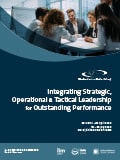An intensive professional development training course on
Protecting your
Key Assets, Security
& Emergency Response Management
Why Choose this Training Course?
The Structure
This comprehensive training course consists of two modules which can be booked as a 10-Day Training event, or as individual, 5-Day training courses.
Module 1 - Security Management, Planning & Asset Protection
Module 2 - Major Emergency Management & Initial Response (MEMIR)
The Course Content
Module 1: Security Management, Planning & Asset Protection
Day One: Issues of Security Management
- Strategic and Operation Management
- The Management of Risk
- Crime Management and Prevention
- Management Standards
Day Two: The Importance of Security Planning
- Legal Obligations
- Loss of Reputation
- Planning and Managing Security Projects
- Principles of Emergency Response and Recovery
Day Three: Threats to Assets
- Understanding Loss
- Key Point Identification
- Risk Analysis
- Security Survey – Class exercise
- Intellectual Property / Computer Security
- Evacuation Planning
Day Four: Principals of Asset Protection
- Physical Security
- Perimeter Security and Access Control
- Security Lighting
- Communication and Control Centres
- Investigations / Interviewing
- Special Risks: Terrorism, Kidnap, Bomb Warnings, Search Techniques, Explosives recognition
Day Five: Implementing Asset Protection Programme
- Crisis Management Plans
- Business Continuity Plans
- Mutual Aid
- Communication Strategies
- Dealing with the Media
Module 2: Major Emergency Management & Initial Response (MEMIR)
Day Six: Developing Major Emergency Response techniques for the 24/7 world
- Consider the full range of potential emergencies facing your industry
- Understand all the elements which are commonly encountered in a Major Emergency
- Who is the Emergency Response Manager and what should be involved in the Emergency Response programme?
- Develop the execution of decision making processes between all your stakeholders
- Apply co-ordinated planning, training, exercising and team development
- The Auditing Process - Self-Evaluation questions and Syndicate questions
Day Seven: Implementing co-ordinated Command and Control techniques
- Managing the Emergency Response, Incident Command Systems (ICS)
- Emergency Communications Centre, facilities and Information Management
- On-scene management, consider the leadership and communication issues
- Exercise: A rapidly escalating incident, what should you consider?
- Business Continuity Management (BCM) Identifying essential core functions
- Loss of essential services, what are your recovery priorities?
Day Eight: Communications, Protecting & Enhancing Company’s Reputation
- Understanding the implications and impact of Social Media
- The Toolkit – best practice examples in protecting your Reputation
- Media Management Guidelines and the Communications Checklist
- Workshop - what should be in your Communications (Media) Plan?
- Rapidly developing situation leading to information overload
- Workshop - organising and running a live Press Conference
Day Nine: Human & Environmental aspects of a Major Emergency Response
- How to manage stress in yourself and your team
- Alerting and Warning all stakeholders
- Actions: Missing or injured personnel and/or multiple casualties
- Loss of key personnel, loss of muster or refuge points
- Evacuation (or containment)
- Environmental concerns, loss of containment and effects
- Case Study followed by role playing exercise: Handling a Major Emergency
Day Ten: Exercises: Plans that have not been validated are just paper
- Case Studies, when it all goes wrong, what lessons can we learn?
- Exercise Design for the Emergency Response Teams
- Types of exercise, benefits, advantages and each potential disadvantages
- The Essential 17 Point de-brief Agenda
- Final Report, implementing the key recommendations, closing the loop
- Develop an action plan of learning from incidents, drills and exercises
The Certificate
DO YOU WANT TOLEARN MORE ABOUT THIS COURSE?
© 2024. Material published by AZTech shown here is copyrighted. All rights reserved. Any unauthorized copying, distribution, use, dissemination, downloading, storing (in any medium), transmission, reproduction or reliance in whole or any part of this course outline is prohibited and will constitute an infringement of copyright.







